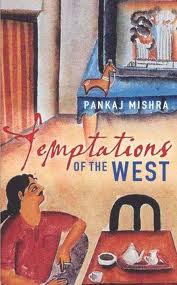
Book review: Temptations of the West: How to be modern in India, Pakistan and beyond. By Pankaj Mishra. Picador, 2011. 452 pages. R$ 24,63 (kindle, amazon.com.br)
Any book dealing with the concept of the West faces a difficulty because the West is a highly intangible construction that changes shape along with the shifts of geopolitics. For example, while Europe was historically seen as the embodiment of the West (which then had a mostly religious-historical connotation), the rise of the United States profoundly affected the concept – this became particularly visible during the Cold War, when the center of the West migrated to the United States. In the bipolar world, the concept of the West suddenly had an ideological connotation, representing the free, democratic and capitalist world.
This was highly misleading: Far from being anti-western, communism was a very much western idea. Stalinism and Maoism are not versions of oriental despotism – as many Western and non-Western scholars and policy makers tried to argue – rather, they were the result of a utopian experiment inspired, essentially, by the most radical ideals of the European enlightenment. In cultural terms, the concept of the West is just as unsettled. Today, with a supposedly anti-Western Soviet Union long gone, the concept means very different things to different people – it may have racial, political, historical, cultural, religious, geographical or geopolitical connotations – and opinions about who belongs to the West and who does not often contain inconsistencies. Despite the difficulties to measure or define the West, and thus its questionable utility, it nevertheless remains a real concept – one that people across the world use, evaluate, reject, promote or seek to emulate – whatever how they define it.
In Mishra’s Temptations of the West, which is autobiography, travelogue and political and historical analysis, the West represents modernity, and the author vividly writes about India’s, Pakistan’s, Tibet’s and Afghanistan’s encounters with it, thus creating a intriguing portraits of these societies. Mishra’s style is calm and objective, but the book remains very much a personal narrative – and the reader quickly identifies with the author’s perspective. Despite having grown up in a small town in Northern India himself, Mishra (who now lives in Great Britain) looks at South Asia as critical outsider, thus making the book accessible even for those who have read little about India.
In the chapter “Allahabad”, Mishra neatly portrays the Nehru clan, whose contradictions and identity struggles reflect India’s difficult encounter with modernity – as when he recounts how Nehru’s sister, educated by a British governess, looked down on Nehru’s wife Kamala because the latter did not speak English fluently. Interestingly, in the crucial days before and after Partition in 1947, Nehru, whose identity was strongly influenced by British culture, paid more attention to the incompetent Lord Mountbatten than in many of his Indian advisors, including Gandhi.
The image Mishra paints of India is profoundly unsettling – a society not only of unspeakable poverty, violence and hopelessness, but also of widespread corruption, lawlessness and opportunism – which starkly contrasts the India the West longs to see – vibrant, exotic, innovative, democratic, and fundamentally benign. His chapter on Kashmir is particularly depressing. Mishra continuously questions the depth of India’s democracy given that many pre-independence power structures remained in place after democratization. His continuous focus on Muslim-hating Hindu nationalists, principally in the chapter “Ayodhya” is a continuous theme repeated somewhat excessively, overstating their influence in Indian society – although the plight of Muslims remains a major concern in India.
Hindu nationalists who reject ‘Western influence’ and who promote ‘traditional values’ cannot escape the contradiction that Hinduism as it figures in Indian politics today is a byproduct of an encounter with the West – in fact, anti-colonial movements reinvented Hinduism as a religion so that it could serve as a valid defense to the West, thus unwittingly creating a simplified belief system molded according to the Western concept of ‘religion’. The idea that Indian tradition could not help but change profoundly upon being in contact with the West is an important theme in the book. Mishra sees societies in South Asia as striving for a modernity not distinctly framed for themselves, but irreversibly deformed by the inheritance of western colonialism. A powerful example is Mishra’s analysis of democratic politics on cast identity, often formalizing and thus exacerbating relations between different casts and religions for the purpose of winning an election, rather than focusing on social or economic issues.
As the shift of global power away from the United States and Europe will run its course, the West will be less often associated with modernism. The first region in the world for this to become visible is, paradoxically, Africa, where elites increasingly look towards China rather than the West. Yet the interesting question arises how countries so profoundly shaped by their contact with a modern and dynamic West will behave once the West is no longer considered to be more modern or richer. Will Hinduism regain its pre-Western form? Or will the West leave, even after its relative decline, a lasting (yet not necessarily positive) legacy in all the societies it temporarily occupied?
Read also:









